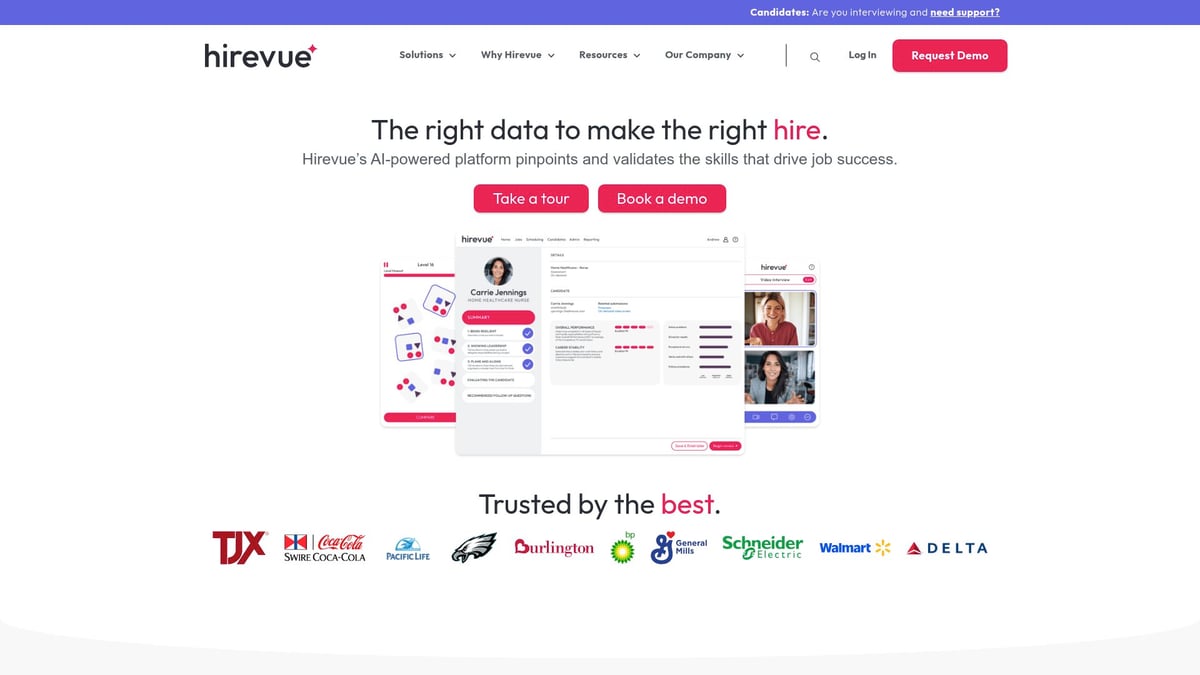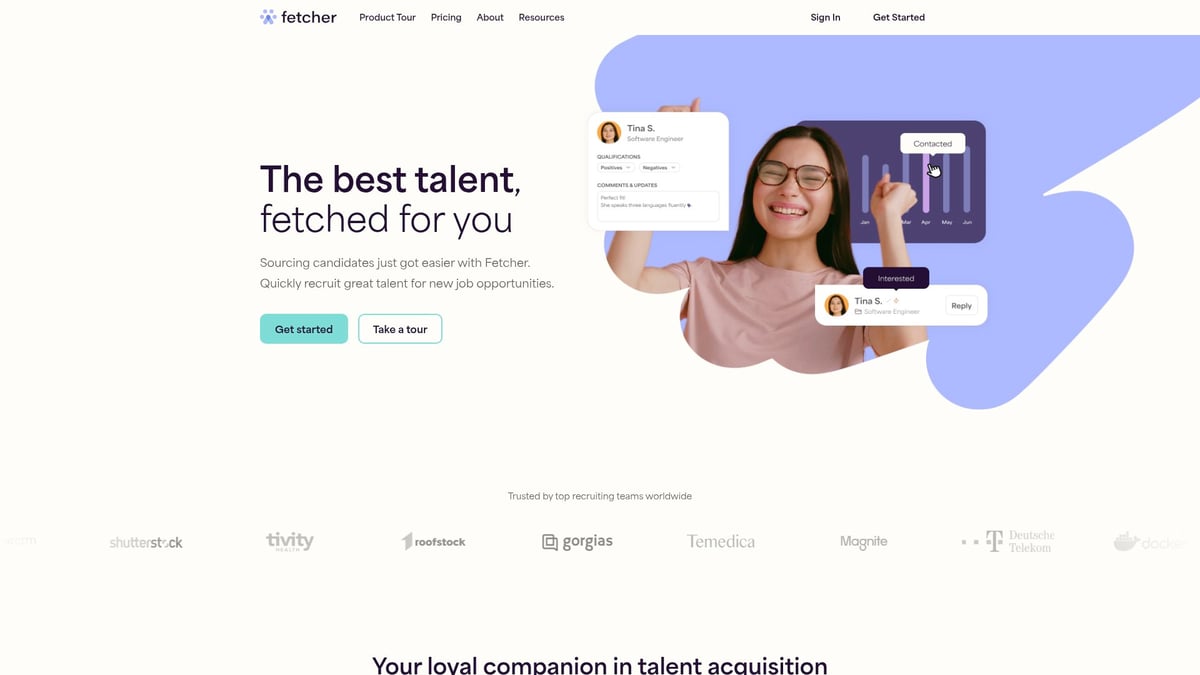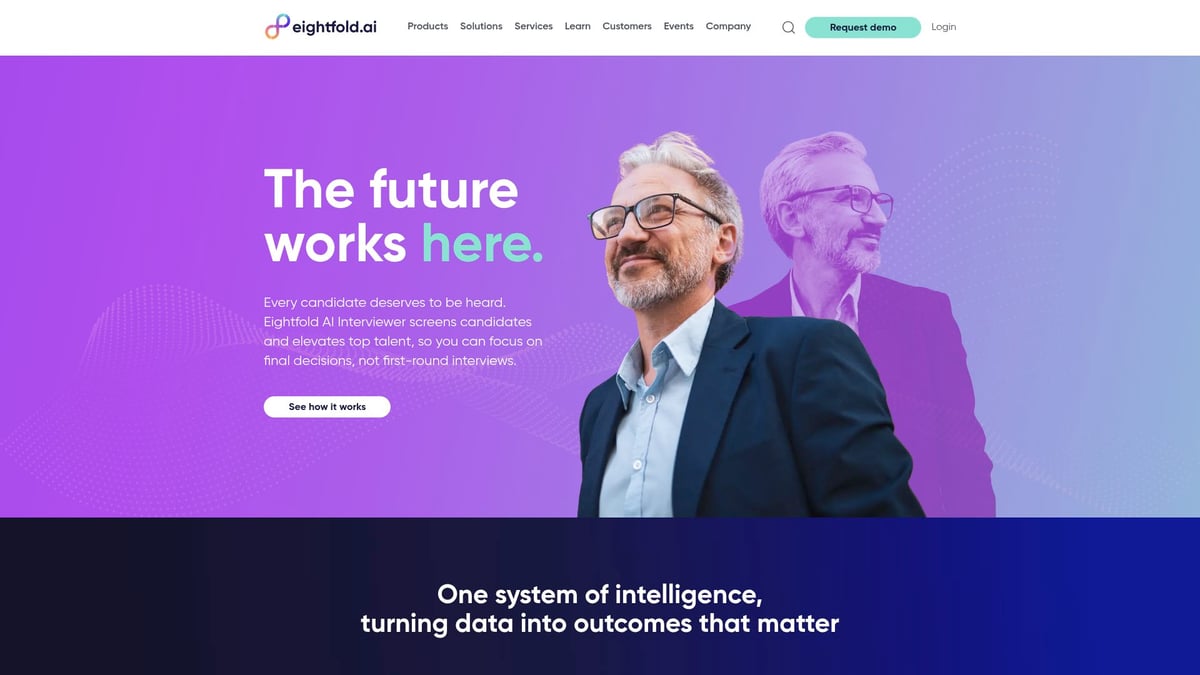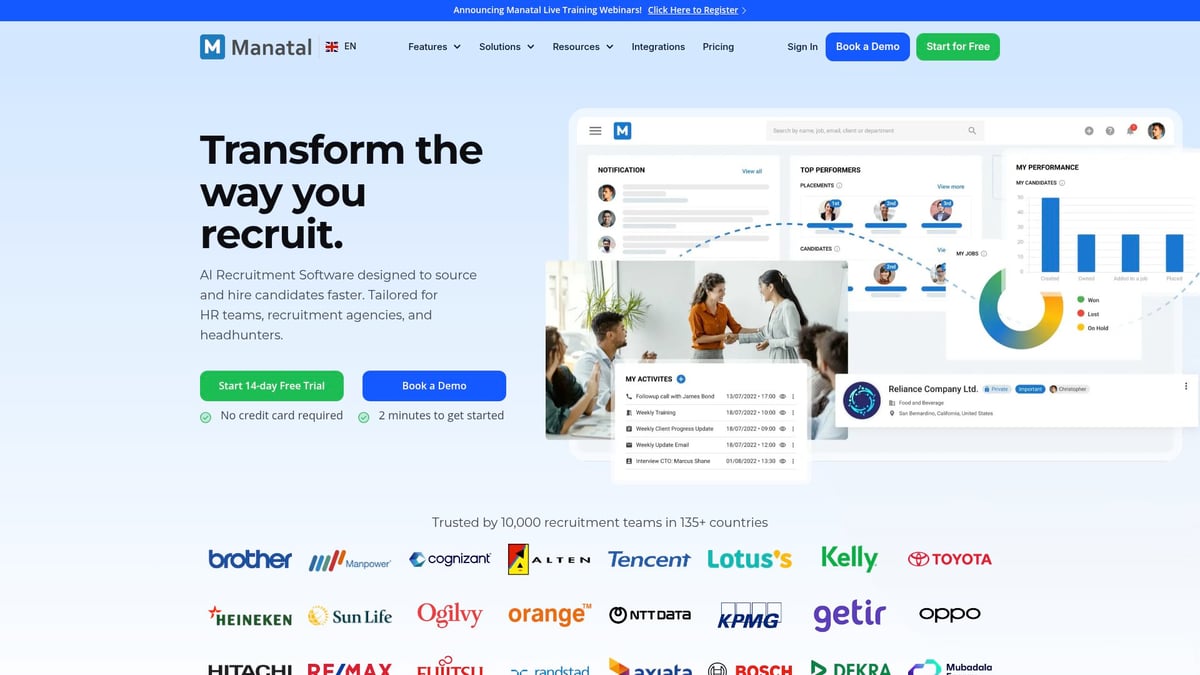November 4, 2025
7 Game-Changing AI Hiring Software Tools for 2025

AI is transforming how organizations find and hire talent, making traditional recruitment processes faster and more effective. As businesses face growing challenges like bias, inefficiency, and talent shortages, the need for advanced solutions has never been greater. This article serves as your guide to the seven most innovative ai hiring software tools set to reshape recruitment in 2025. Discover how these platforms streamline screening, improve candidate quality, and help you build stronger, more diverse teams. Ready to explore the future of hiring? Let us introduce the tools that will define your competitive edge.
Why AI Hiring Software Is Transforming Recruitment
Recruitment has changed dramatically in recent years, moving far beyond manual processes and instinct-driven decisions. The rise of ai hiring software is at the heart of this transformation, offering powerful tools that help organizations stay competitive in a rapidly evolving talent market. By leveraging advanced algorithms, machine learning, and automation, companies can now connect with top candidates faster and more efficiently than ever before.
The traditional hiring process is often hindered by unconscious bias, lengthy manual screening, and the overwhelming task of managing hundreds or thousands of applications. Ai hiring software directly tackles these challenges by using data-driven insights to identify the best candidates, minimize human error, and streamline workflows. According to Gartner, over 50% of HR leaders plan to increase their investment in AI tools by 2025, underscoring the growing confidence in these solutions. For a deeper dive into how AI addresses these pain points, see the Benefits of AI in recruitment.
Organizations that adopt ai hiring software are already seeing measurable improvements. For example, large enterprises report reduced time-to-hire and higher candidate quality, as AI-driven platforms quickly surface the most relevant applicants. Several case studies highlight significant ROI, such as companies increasing workforce diversity and lowering turnover rates through fairer, more consistent evaluation methods. These successes illustrate how intelligent automation can reshape recruitment outcomes.
Beyond efficiency, ai hiring software is elevating the candidate experience. Faster, more personalized communication means candidates feel valued and engaged throughout the process. Leading AI tools also prioritize transparency and ethical practices, building trust by making algorithms explainable and ensuring compliance with hiring regulations. As the field advances, organizations must keep a close eye on ethical considerations, choosing solutions that balance innovation with fairness and accountability.
7 Game-Changing AI Hiring Software Tools for 2025
The landscape of ai hiring software is advancing rapidly, delivering transformative results for recruiters and HR professionals. In 2025, the right ai hiring software tools will be essential for organizations seeking to overcome talent shortages, reduce hiring bias, and streamline recruitment workflows. Below, we explore seven innovative platforms that are shaping the future of talent acquisition.
Klearskill
Klearskill stands out in the ai hiring software space with its AI-driven CV analysis and candidate ranking. The platform enables recruiters to generate instant shortlists, significantly reducing manual screening efforts. Its automated resume parsing capability quickly extracts relevant details, while intelligent candidate scoring evaluates applicants based on customizable criteria. This ensures that only the most suitable candidates move forward in the hiring process.

Klearskill’s ranking algorithms are adaptable, allowing organizations to tailor their hiring workflows to specific role requirements. For high-volume hiring, this ai hiring software delivers clear efficiency gains by automating repetitive tasks and minimizing human error. Recruitment teams benefit from unbiased, data-driven shortlists, supporting fairer hiring outcomes.
The platform is ideal for teams managing large applicant pools or searching for specialized talent. Klearskill offers multiple pricing tiers to accommodate various business sizes, as well as demo and trial options for new users. Pros include rapid candidate screening, accuracy, and reduced administrative burden. However, some users may experience a learning curve when adapting to new AI-driven workflows.
For a broader look at the top solutions in this space, see this Best AI recruiting software resource, which highlights additional leading tools.
HireVue
HireVue is a pioneer in ai hiring software, providing a robust video interviewing platform enhanced by AI-powered candidate assessments. Its automated video analysis evaluates facial expressions, tone, and word choice to gauge candidate responses objectively. The platform also includes game-based cognitive testing and predictive analytics to assess cultural fit and job suitability.

With HireVue, recruiters can dramatically reduce interview bias and save significant time per hire. The ai hiring software is highly scalable, making it suitable for enterprise HR teams and fast-growing startups alike. By automating initial interview rounds and providing detailed analytics, HireVue allows decision-makers to focus on the most promising candidates.
Pricing is typically structured around enterprise-focused plans with tailored solutions for larger organizations. Key advantages include advanced analytics, scalability, and the ability to handle high applicant volumes. On the downside, some candidates and recruiters have raised concerns about privacy in video assessments, and organizations must ensure compliance with relevant data protection laws.
Despite these concerns, HireVue’s ai hiring software continues to set the standard for digital interviewing and candidate evaluation.
Pymetrics
Pymetrics brings a neuroscience-driven approach to ai hiring software by leveraging behavioral data to match candidates to roles. Its platform uses gamified evaluations to assess cognitive and emotional traits, creating a detailed profile of each applicant. AI algorithms then match these profiles to employer-defined criteria, supporting more objective and evidence-based hiring decisions.

Bias mitigation is a core focus for Pymetrics, with algorithms regularly audited to ensure fairness. The ai hiring software enables global enterprises and organizations with strong DEI commitments to enhance workforce diversity and inclusion. Custom employer profiles allow for tailored assessments aligned with company culture and role requirements.
Pricing is typically enterprise-oriented, with deployments customized for large-scale rollouts. The key benefits of Pymetrics include improved diversity outcomes and a scientifically validated hiring process. Potential drawbacks are candidate skepticism about the gamified nature of assessments and initial onboarding time for HR teams.
Overall, Pymetrics is redefining the ai hiring software landscape by aligning talent selection with neuroscience and fairness.
Fetcher
Fetcher is an ai hiring software solution that streamlines talent sourcing through a blend of machine learning and human curation. The platform automates candidate outreach, managing pipelines and nurturing relationships at scale. Its diversity-focused search features help companies build more representative candidate pools while reducing time spent on manual sourcing.

Fetcher’s ai hiring software integrates with popular applicant tracking systems, allowing mid-sized businesses, recruitment agencies, and tech companies to optimize their sourcing strategies. Automated workflows free up recruiters to focus on higher-value tasks, while the human-in-the-loop approach ensures quality control.
Fetcher operates on a subscription-based pricing model, with custom plans available for varying business needs. Pros include increased sourcing efficiency, improved candidate quality, and effective diversity searches. The main challenge is integration complexity with older applicant tracking systems, which may require additional setup.
For organizations looking to scale outreach and build stronger pipelines, Fetcher offers a compelling ai hiring software solution.
Eightfold AI
Eightfold AI’s Talent Intelligence Platform is a leading ai hiring software tool, leveraging deep learning to match candidates to jobs and predict career trajectories. Its core capabilities include AI-powered talent matching, diversity analytics, and talent rediscovery, which helps organizations identify qualified candidates already in their database.

Large enterprises benefit from Eightfold AI’s advanced analytics and internal mobility features, allowing them to maximize workforce potential and promote from within. The platform’s scalability makes it suitable for complex hiring environments with high volumes and multiple job families. Pricing is typically custom-quoted for enterprise clients, reflecting the tool’s extensive feature set.
Pros of this ai hiring software include its ability to deliver actionable insights, support diversity goals, and handle large datasets. However, smaller teams may find the learning curve steep, given the platform’s depth and customization options.
Eightfold AI empowers organizations to move beyond traditional talent acquisition, harnessing predictive insights for strategic workforce planning.
Manatal
Manatal is a user-friendly ai hiring software platform designed for small and mid-sized businesses and recruitment agencies. It enhances applicant tracking with features like resume enrichment, which pulls in data from public profiles, and social media sourcing to expand candidate reach. Collaborative hiring tools enable teams to work together seamlessly throughout the recruitment process.

Manatal’s ai hiring software offers affordable, transparent monthly subscription plans, making it accessible for smaller teams. The interface is intuitive, reducing the learning curve for new users. Efficient candidate management tools help recruiters move applicants through the pipeline quickly and effectively.
Pros include ease of use, cost-effectiveness, and a strong focus on core recruitment functions. The main limitation is the lack of advanced customization options, which may be important for larger or more complex organizations.
For SMBs seeking a reliable and straightforward ai hiring software solution, Manatal delivers excellent value and practical features.
X0PA AI
X0PA AI is a data-driven recruitment platform that prioritizes objective hiring and the reduction of bias. Its ai hiring software integrates AI-powered screening, automated interview scheduling, and predictive analytics to forecast candidate retention and performance. The system is designed to support compliance with fair hiring standards, making it a strong fit for government, education, and corporate sectors focused on DEI.

X0PA AI’s platform offers customized pricing models, tailored to the unique needs of each organization. Benefits include increased hiring objectivity, improved compliance, and actionable insights into candidate potential. The platform’s predictive capabilities help organizations make data-backed hiring decisions with greater confidence.
While the platform supports robust compliance and fairness measures, initial setup may be complex, especially for teams unfamiliar with advanced AI systems. Nevertheless, X0PA AI’s commitment to ethical and transparent ai hiring software makes it a top choice for organizations seeking to modernize their recruitment processes.
Key Factors to Consider When Choosing AI Hiring Software
Selecting the right ai hiring software is a critical decision for any recruitment team. With the increasing adoption of AI in HR, leaders must navigate a growing landscape of tools, each promising transformative results. However, not all solutions are created equal, and a thoughtful evaluation can make the difference between a smooth implementation and ongoing frustration.
Integration is often at the top of the checklist. Your ai hiring software should seamlessly connect with existing HR tech stacks, including your ATS, onboarding platforms, and communication tools. According to recent surveys, 68% of HR leaders now rank ease of integration as their highest priority when adopting new technology. This ensures minimal disruption and allows teams to leverage existing workflows, making the transition as smooth as possible. Scalability is equally vital, especially for organizations planning to grow or manage fluctuating hiring volumes.
Data privacy and security are non-negotiable. With sensitive candidate information at stake, ai hiring software must comply with regulations such as GDPR or CCPA. Look for tools that offer robust encryption, clear data handling policies, and transparent user consent mechanisms. User experience is another key factor—both for recruiters and candidates. Intuitive dashboards, customizable workflows, and mobile-friendly interfaces can significantly boost adoption and satisfaction.
Transparency and explainability in AI-driven decision-making are essential for ethical hiring. Leading platforms now provide detailed audit trails and explainable algorithms, making it easier to understand how candidate scores and recommendations are generated. Vendor support and customization options can be game changers. Companies often evaluate potential partners by the quality of onboarding, training resources, and the ability to tailor features to unique hiring needs. Compliance with global hiring regulations is a must, especially for multinational teams.
Budget constraints also play a significant role when choosing ai hiring software. SMBs may prioritize affordable, out-of-the-box solutions, while enterprises often seek advanced analytics and custom integrations. Assess total cost of ownership, including setup, training, and ongoing support. Ongoing training and effective change management are crucial to maximizing ROI. Teams that invest in continuous learning and adaptation consistently see better results.
For a comprehensive overview of how AI-powered recruitment solutions are reshaping these decisions, visit this AI-powered recruitment tools overview. By weighing these factors and staying informed, HR leaders can ensure their chosen ai hiring software delivers measurable value and supports strategic talent goals.
The Future of AI in Hiring: Trends to Watch for 2025
The next chapter of ai hiring software is already unfolding, bringing new opportunities and challenges for recruitment teams. As organizations seek a competitive edge, the rapid evolution of these tools is reshaping the way talent is discovered, engaged, and retained.
Generative AI is leading the way in candidate engagement. Solutions now use conversational AI to craft personalized messages, answer questions, and even conduct initial interviews. This trend is making ai hiring software far more interactive, helping recruiters connect with candidates quickly and at scale.
Another major focus is ethical AI and fairness. Vendors are investing in transparent algorithms to tackle bias and ensure compliance with global standards. According to recent industry reports, leading platforms are embedding bias-mitigation tools and explainability features to build trust among both recruiters and applicants. For a deeper dive into how these innovations reduce bias, visit AI's role in reducing hiring bias.
Internal mobility and skills-based hiring are gaining momentum as organizations look to nurture talent from within. Ai hiring software is now capable of mapping employee skills, recommending career paths, and identifying opportunities for upskilling. These features not only improve retention but also address talent shortages by making the most of existing workforces.
Challenges remain, especially as new regulations and candidate skepticism about AI-driven processes emerge. Companies piloting next-generation features like real-time skill assessments and voice-based interviews must balance innovation with transparency. For more on how these advancements boost recruitment efficiency, see AI's impact on recruitment efficiency.
To stay ahead, recruitment teams should embrace flexible, future-ready ai hiring software that evolves with changing demands. By keeping an eye on these trends, leaders can unlock new levels of efficiency, fairness, and candidate satisfaction.
